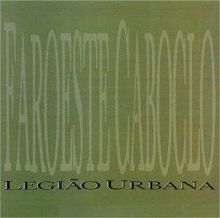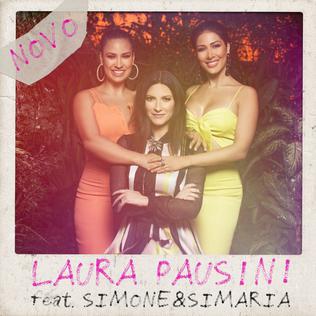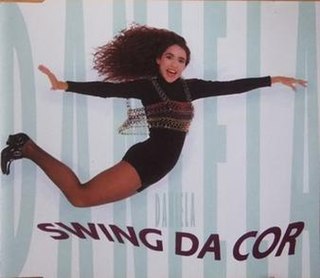 W
W"Algo Tienes" is a song recorded by Mexican recording artist Paulina Rubio for her seventh album, Pau-Latina (2004). It was written and produced by Chris Rodríguez with additional writing by Manny Benito. The song was released as the album's second single on May 19, 2004, by Universal Music Mexico.
 W
W"Asa Branca" is a song written by Luiz Gonzaga and Humberto Teixeira in 1947. The asa-branca of the title is the picazuro pigeon. With its departure the desolation of the parched sertão is complete, and the protagonist of the song, unable to make a living, must leave the sertão and his lady-love Rosinha. The song closes with his promise to return.
 W
WAlfredo da Rocha Viana Filho, known as Pixinguinha was a Brazilian composer, arranger, flautist and saxophonist born in Rio de Janeiro. Pixinguinha is considered one of the greatest Brazilian composers of popular music, particularly within the genre of music known as choro. By integrating the music of the older choro composers of the 19th century with contemporary jazz-like harmonies, Afro-Brazilian rhythms, and sophisticated arrangements, he introduced choro to a new audience and helped to popularize it as a uniquely Brazilian genre. He was also one of the first Brazilian musicians and composers to take advantage of the new professional opportunities offered to musicians by the new technologies of radio broadcasting and studio recording. Pixinguinha composed dozens of choros, including some of the best-known works in the genre such as "Carinhoso", "Glória", "Lamento" and "Um a Zero".
 W
W"Don't Say Goodbye" is a song by Brazilian musician Sérgio Mendes, featuring vocals from American singer John Legend. was released on August 29, 2014 as the lead single of his nineteen studio album Magic, with the record label OKeh Records. The song was produced by Mendes.
 W
W"Envolvimento" (transl. Involvement) is a song by the Brazilian girl band MC Loma e as Gêmeas Lacração. The Official Music Video became the second viral video on YouTube of Brazil in Canal Descontraídas, after "Meu Ritmo". It became more famous when the Brazilian YouTuber Felipe Neto reacted to the music video and famous singers sang this song like Anitta, Wesley Safadão and Solange Almeida. The music won the title of the Carnaval hit of 2018, and another Official Music Video produced by Kondzilla.
 W
W"Faroeste Caboclo" is a song composed by Renato Russo and recorded by Brazilian rock band Legião Urbana. Written in 1979, the song was released in 1987 in the album Que País É Este.
 W
WGalinha Pintadinha, also known in Canada as "Lottie Dottie Chicken" is a Brazilian project for children's music, created by Juliano Prado and Marcos Luporini, and animated by Bromelia Produções. The songs are originally in Portuguese and are getting millions of views on YouTube. Some of the songs have been translated into Spanish and English.
 W
WLua de Cristal is a song by Brazilian singer Xuxa. It was released on July 16, 1990, by Som Livre along with his seventh studio album. Written by Michael Sullivan and Paulo Massadas, Luna de Cristal is the theme song from the 1990 Tizuka Yamasaki film of the same name starring Xuxa.
 W
W"The Ketchup Song (Aserejé)" is the debut single by Spanish pop group Las Ketchup, taken from their debut studio album Hijas del Tomate (2002). The song tells the story of a rastafari-like Romani (afrogitano) with a special charm. In addition to the original Spanish version, the song exists in forms with Spanglish and Portuguese verses, although the nonsensical chorus is identical in all three versions.
 W
W"No Tabuleiro da Baiana" is a samba written in 1936 by Ary Barroso and recorded by Carmen Miranda.
 W
W"Novo" (transl. New) is a song by Italian singer Laura Pausini featuring the Brazilian duo Simone & Simaria, making part of the album Fatti sentire by Laura. It is the second official single of the disc, released especially in the Brazilian market.
 W
W"Rap das Armas" is a 1990s song originally written and performed by Brazilian duo Junior e Leonardo. It has lyrics in Brazilian Portuguese written on the melody of the song "Your Love" by the English rock band The Outfield.
 W
W"Swing da Cor" is a song written by Luciano Gomes and originally recorded in 1991 by the Brazilian singer Daniela Mercury, in her first solo album Daniela Mercury. The song is featuring Olodum, it was released as the first single of the album and made a huge success all over Brazil, reaching No. 1 on Billboard Hot 100 Brazil.
 W
W"Zoio de Lula", also stylized as "Zoio D Lula", is a single by Brazilian alternative rock band Charlie Brown Jr.. Written by vocalist Chorão alongside his bandmates Champignon and Renato Pelado, it was released on April 1, 1999 as the first single of their second studio album, Preço Curto... Prazo Longo, even though it previously appeared on the teaser EP Aquele Luxo!.
 W
W"Zumbi" is a song by Brazilian samba-rock artist Jorge Ben. It appears on his 1974 album, A Tábua de Esmeralda. Its title refers to Brazilian slave settlement leader Zumbi dos Palmares. The song's lyrics describe the scene of a slave auction, ending with hopeful speculation about what will happen when Zumbi arrives. The refrain "Angola, Congo, Benguela, Monjolo, Cabinda, Mina, Quiloa, Rebolla" evokes the African origins of the slaves up for sale in the song.